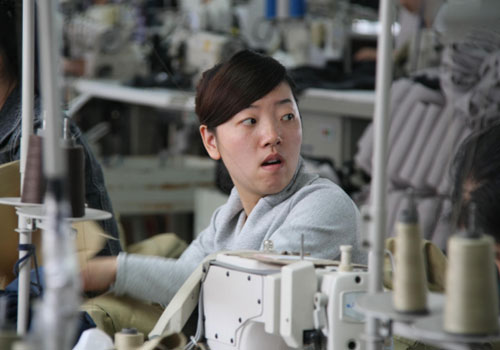Economy
Vietnam attracts Chinese investors for S Asian market
By Lan Lan (China Daily)
Updated: 2010-08-31 12:31
 |
Large Medium Small |
BEIJING - Chinese companies are investing more in Vietnam in order to get better access to the Southeast Asian market and its comparative cost advantages, Vietnamese trade officials said on Monday.
 |
|
A woman operates a machine at a textile factory in Jiangsu province. Some companies have reportedly moved their factories to Southeast Asian countries due to rising labor costs after 27 provincial regions in China raised minimum wages. [Photo/China Daily] |
"Investment from China has continued to increase in the past few months thanks to Vietnam's comparative cost advantages," Bui Quoc Trung, deputy director-general of the Foreign Investment Agency under Vietnam's Ministry of Planning and Investment, told China Daily in Beijing.
By the end of July, Chinese enterprises had invested in 743 projects in Vietnam, with China's total investment in the nation amounting to $3.1 billion. Chinese companies have invested in 53 of Vietnam's 63 provinces, said Trung.
Compared to other Asian cities such as Bangkok and Shanghai, costs in Vietnamese cities such as Hanoi are relatively low in terms of tariffs and minimum wage standards, Trung said.
Average labor costs in Vietnam are only around half of those in China.
On average, it costs about $100 to hire an unskilled worker in Vietnam, said Wan Hailong, assistant manager of HydroChina International Engineering Co's overseas department.
| |||||||
A total of 27 provinces, autonomous regions and municipalities have so far raised their minimum wage levels this year
Rising labor costs in China have pushed domestic companies to alleviate cost pressures by looking at countries such as Vietnam.
However, it's unlikely that multinational companies operating in China will move to countries like Vietnam on a large scale since China's vast domestic market is very attractive, said Lu Hang, director of the Fortune 500 Brand Research Center under the Ministry of Science and Technology.
Sino-Vietnamese bilateral trade is expected to reach $25 billion in 2010, said Nguyen Van Tho, Vietnam's ambassador to China.
Trade between the two nations hit $12.8 billion in the first half of 2010, up 49.5 percent year-on-year after a free trade agreement between China and the Association of Southeast Asian Nations went into effect in January, said Tho.




